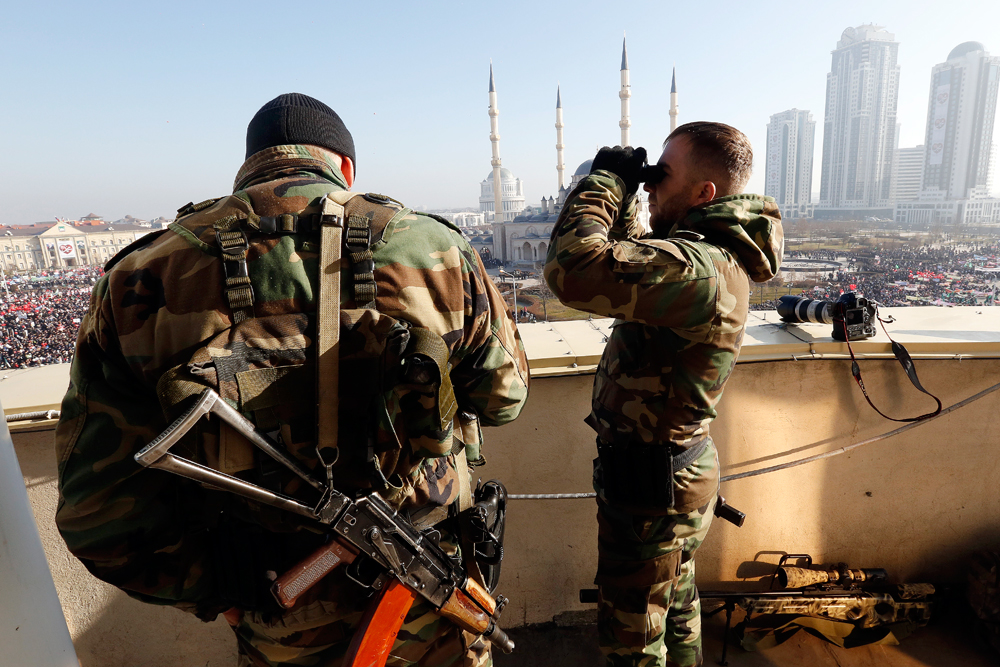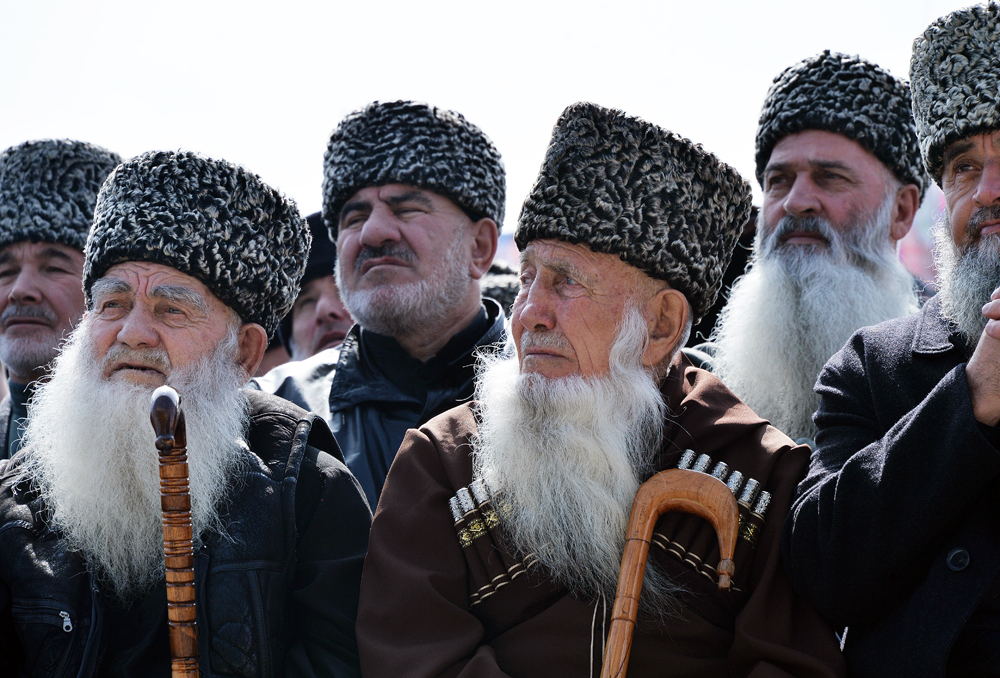
Much attention is paid to the "prevention of terrorism" in all parts of the North Caucasus.
Valery Matytsin / TASSSecurity forces in the North Caucasus have greatly succeeded in the fight against the terrorist underground. According to 2015 statistics, they virtually destroyed the Caucasus Emirate (the local branch of Al-Qaeda)*, and eliminated 20 of the 26 leaders of the groups that had sworn allegiance to the Islamic State.
In addition to law enforcement operations, local authorities are making great efforts in "terrorism prevention" among the population. According to experts, these combined measures have brought a good result. The activity of terrorists in the region is rapidly on the decline since the days of the Sochi Olympics in 2014, when security forces launched a campaign to drive out the Wahhabis.
However, methods of preventing terrorism, which often violate human rights, have drawn sharp criticism from human rights activists. Moscow-based Memorial Human Rights Center dedicated a recent report to a detailed analysis of the situation in the North Caucasus and the description of the authorities' policies.
Much attention is paid to the "prevention of terrorism" in all parts of the North Caucasus. Due to the intensity of anti-terrorist activities in Chechnya and Ingushetia - considered by human rights activists to be hotbeds of Islamic extremism - there have actually been fewer police operations there than in other parts of the North Caucasus. In both republics, local MPs now regularly tour villages and towns to lecture about the dangers of religious extremism.
In addition, for example, Chechnya, which has developed the most sophisticated system of control over the population, has established the practice of so-called certification of young people.
"Several months ago, the process of mandatory spiritual and moral certification was launched, which was renamed 'surveying' after a media firestorm," said Yekaterina Sokiryanskaya, director of the Russia and the North Caucasus project at the International Crisis Group.
This means that a file is opened on every young man or woman between 14 and 35 years of age, which contains not only personal characteristics, but also an indication to which branch of Islam the family clan belongs.
A key feature is that a young person must have a guarantor from his adult relatives, and his name is also entered in the file (this is how the Chechen authorities tried to formalize the practice of collective responsibility that exists in Islamic societies).
 Local residents at the celebration of the Day of the Chechen Republic's Constitution in front of the Central Mosque in Grozny. Source: Said Tsarnaev / RIA Novosti
Local residents at the celebration of the Day of the Chechen Republic's Constitution in front of the Central Mosque in Grozny. Source: Said Tsarnaev / RIA Novosti
Despite the fact that if a young person joins a terrorist organization, the guarantor may not be held legally liable (Russian legislation does not allow the imposition of collective guilt), the guarantor is really risking much, since in this case he can face a series of very serious troubles, for example, he may find that his house and property has mysteriously been burned down. Human rights activists point out the obvious risks to human rights violations in the operation of this system, a negative attitude toward it within Chechen society, as well as its archaic and illegal nature.
In Dagestan, authorities created their own system of "preventive supervision." Unlike Chechnya, it is not inclusive, and does not focus only on young people. They launched a database where law enforcement officers enter information on adherents of Wahhabism. The files not only contain all sorts of information about a person, but also a sample of his or her DNA.
Today this supervision system, according to the news portal Caucasian Knot, covers about 100,000 people. To find be entered into the database is fairly easy. As human rights activists say, you fall under suspicion if you look like a Wahhabi because of the shape of your beard or the manner of your dress; denunciation is also a common cause. But it is extremely difficult to have yourself removed from this database. Moreover, inclusion in the database means a ban on travel, Sokiryanskaya says.
In addition, the police conduct raids on Salafi mosques and detain visitors. Although, as one detective told Kommersant newspaper, they are closely monitoring "who is saying what in the mosques; no one is registered just for his beard."
Although most experts agree that there has been a decrease in the number of armed extremists in the North Caucasus, they note the failure to find a solution to the region's core issue, which feeds terrorism. This is extremely weak economic growth, unemployment and lack of prospects and work for young people.
In addition, experts say that the reduction of extremism may be a temporary phenomenon associated with the fact that militants left the regions, attracted by high wages offered to mercenaries by the Islamic State, while the Caucasus Emirate has been suffering lately from underfunding since payments from Al Qaeda and other sponsors are increasingly disappearing in transit.
"Many extremists have simply left for the Middle East, so the position of the underground in these republics has begun to weaken," says Konstantin Kazenin, a senior researcher at the Russian Presidential Academy of National Economy and Public Administration. According to him, some of them appear to be fighting today in Syria and Iraq. At least, according to the same official data, many more people in Dagestan left for Syria than took to the forests and mountains.
As for the returnees from the Middle East, who have already started to arrive, their flow can so far be controlled, experts say. For example, ten people recently traveled to Russia through Europe under the guise of private car importers and tried to join the underground in the North Caucasus. But they were tracked and eventually arrested.
*The Caucasus Emirate, Al-Qaeda and the Islamic State are banned in Russia.
All rights reserved by Rossiyskaya Gazeta.
Subscribe
to our newsletter!
Get the week's best stories straight to your inbox